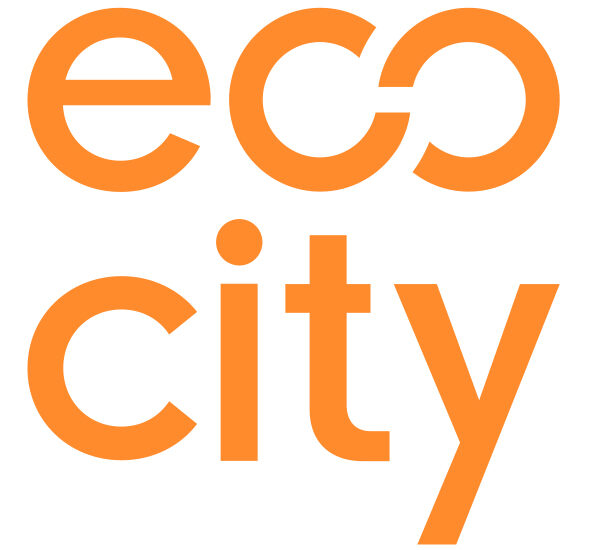Since the Paris Climate Agreement in 2015, it is finally clear that we must drastically reduce man-made CO2 emissions. Our cities and metropolises are a huge lever in this: we live in “fossil cities.” The entire urban infrastructure, like mobility, energy supply or the supply of goods and food, only functions in 2019 through an enormous consumption of fossil fuels such as coal, petroleum and petroleum products. Fossil cities also function mostly in a linear fashion, meaning they end up generating vast amounts of waste and emissions that we must laboriously process and dispose of or that pollute our environment. In short, if we start here and succeed in breaking up these fossil structures, we have a chance to achieve the climate goals.
Eco City is the first in the world to show concretely how the transition to a post-fossil age, post-fossil urbanism and post-fossil lifestyles can be designed. It is organized according to the principle of a local circular economy. Energy is no longer imported by tanker from Saudi Arabia or Siberia, but sourced 100% directly from the sun. This also means that money flows remain available locally, and do not follow in the wake of fossil energy flows. Nutrients are cycled, which means that soils do not erode and are usable in the long term, and water is also cycled, which is especially necessary in arid climates, making Eco City a model for regions and areas affected by climate disasters.
What is required is a fundamental transformation process through which the relationship between humans, nature and the environment is reordered under post-fossil conditions. This is a historic turning point in urban and settlement development. And this requires holistic and integrated solutions that encompass all areas of life.The Eco City will thus become a laboratory for integrally thinking together for the first time things that are already being done and tried around the world (microcredit, bioenergy, terra preta, …). So it will be is a laboratory for the post-fossil city (more precisely: a real laboratory). And in the end, hopefully, the start of a much needed turning point: an urban revolution.
